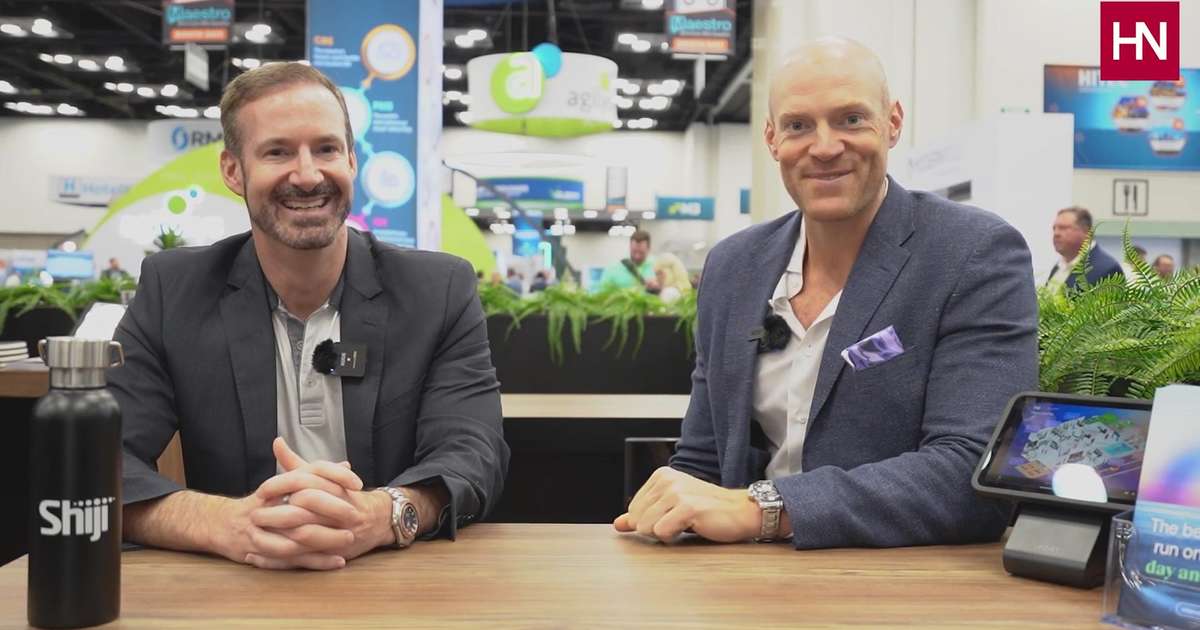
As hotels evolve beyond stitched together systems and fragmented data, Shiji is betting big on unified architecture that blends flexibility with scale. Speaking at HITEC 2025 in Indianapolis, Ryan King, Senior Vice President for the Americas at Shiji Group, joined Adam Mogelonsky for a conversation that touched on the heart of this transformation and why hoteliers can no longer afford to ignore it.
Over the past year, Shiji has undergone a major rebrand, framing its solutions around the 24 hour hotel operation cycle: from “Horizon” for distribution to “Daylight” for PMS, and “Twilight” for data and analytics. It is more than a naming convention. It reflects a core philosophy: technology must support hospitality, not obstruct it.
Central to this approach is the idea that data is the new oil, but it only works if it flows. Shiji’s architecture embraces a modern hub and spoke model where guest profiles sit at the center, and every system, from mobile check in to room service, can plug in, share, and act in real time. No more static CRMs or clunky integrations that take months to build. Instead, Shiji starts from the API level, enabling seamless event based workflows that can trigger personalized actions across properties.
Ryan highlighted real world use cases where hotels are using this unified approach to surprise and delight guests, such as knowing when to order a guest’s preferred wine, or triggering a warm welcome based on a license plate scan at the gate. It is concierge level hospitality delivered at scale.
But the message was clear: what is now considered a competitive advantage will soon become table stakes. Hotels that fail to invest in this kind of real time infrastructure risk falling into a defensive posture, unable to keep pace with guest expectations or brand innovations.
With Shiji’s new Meridian Experiences platform, the company is taking things further, turning traditional services like spa and golf into customizable, bookable itineraries, where ancillary upselling becomes part of the guest journey, not a disconnected afterthought.
At a time when labor is tight and guest expectations are high, the ability to orchestrate seamless service with fewer manual touchpoints is not just efficient, it is essential. As Ryan put it, hotels need partners who will help them keep innovating. And that, perhaps, is the ultimate takeaway for hoteliers preparing for what comes next.
Please visit:
Our Sponsor
